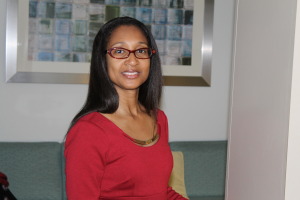Class of 1995
U.S. Department of Justice
 What do Girl Scouts and the Pro Bono program at the University of South Carolina law school have in common?
What do Girl Scouts and the Pro Bono program at the University of South Carolina law school have in common?
For starters, they both teach leadership skills, provide practical training, and have inspired people like Cherie Rogers, a 1995 alumna of USC Law, to continually strive to better their communities.
“Thanks to the Pro Bono Program, I was able to gain hands-on, practical experience to complement my classwork. This provided me with a very positive image of the legal profession
“I suppose pro bono service is in my blood. I still vividly remember reciting the Girl Scouts Promise to serve and help others,” said Rogers, alumna of the class of 1995, “and I’ll be forever grateful to the Pro Bono Program at USC for helping pave my path of 20+ years of federal government service.
As the Assistant Chief for Administration and Training in the Environmental Defense Section of the U.S. Department of Justice, Rogers provides pro bono service through a variety of organizations. She remains active in Girl Scouts, serving as a Troop Cookie Manager and Advisor, overseeing community programs such as the Gift of Caring Service Project. Combining her work as a public servant with that of education, Rogers also acts as co-chair for the Combined Federal Campaign and School Supplies Committees through the Parent-Teacher Association.
“Thanks to the Pro Bono Program, I was able to gain hands-on, practical experience to complement my classwork. This provided me with a very positive image of the legal profession. It challenged me to seek real life experiences,” said Rogers. “I enjoy helping others do the same.”
While in law school Rogers was involved with Richland County’s Sistercare clinic, where she provided services to battered women and their children while working with state agencies and non-profit organizations. She also found time to participate in the Pro Bono Program’s Immigration Clinic, serving as a student attorney in political asylum and deportation hearings. In her current position, she has participated in the Justice in the Courts Mentoring Program through the Department of Justice, where she helped strengthen and improve the juvenile justice system.
“Back in law school, we were taught to serve as beacons of light in our community and to those in need. Still today, I don’t take that for granted,” said Rogers. “Not only has volunteering contributed to my sense of career satisfaction, but it has always been a significant part of the fabric of my life.”
Engage with the Pro Bono Program
Keep up to date on the latest content, here at the Pro Bono Program.
